
Christine Grady underwrote Zika ethics rules. Her husband broke them. Together, they cashed the checks. Her silence wasn’t neutrality—it was complicity.
Christine Grady, HHS chief of bioethics (now retired, unless she chooses Alaska) spent decades championing the vulnerable in clinical research, notably questioning the ethics of human challenge trials that risk exploiting the poor for science’s gain. Yet, her husband, NIAID’s Dr. Anthony Fauci, flouted her principles—first ignoring a 2017 ethics panel ruling against Zika challenge trials she helped shape, then pushing to inject women in Brazil and now Baltimore, casting her silence as the nation’s top bioethicist into stark relief.
Under their watch, NIAID willfully ignored its own 2017 ethics panel’s ruling against Zika human challenge trials, pushing “inject and infect” experiments that Brazil rejected (and Johns Hopkins later accepted). An additional scandal lies in how the hastily-presumed Zika-microcephaly link became a global crisis in the first place: a fear-driven panic, fanned by Brazil’s media / left (using Zika’s microcephaly threat as lever to Brazil’s overturn abortion-constraints)—and where Fauci, in particular, aggrandized the threat while dismissing counterevidence.
The Zika scare emerged in 2015–2016 when Northeast Brazil reported a sharp increase in microcephaly—babies born with abnormally small heads—with rates reaching up to 49.9 cases per 10,000 live births in some areas at the peak in November 2015, far exceeding the typical baseline of 0.5–2 cases per 10,000. The Aedes mosquito, a known carrier of Zika, was quickly blamed, and the virus was linked to the birth defect with alarming speed. The World Health Organization (WHO) declared a Public Health Emergency of International Concern in February 2016, and media coverage amplified the fear, painting Zika as a global threat.
A closer examination reveals a glaring issue: the microcephaly spike was almost entirely confined to Northeast Brazil’s word-of-mouth rather than the mosquito’s areas of activity. Neighboring regions—southern Colombia, eastern Peru, Venezuela, and the broader Amazon basin—saw no comparable increase, despite sharing the same mosquito, the same virus, and genetically similar populations.
This regional discrepancy should have prompted a rigorous null hypothesis review: Is Zika truly causing microcephaly? Instead, the narrative took hold: Zika was the villain, and a vaccine was the solution.
At the height of the 2015–16 scare, Brazil had no reliable baseline of prior microcephaly rates using consistent medical criteria. Once the dust settled, appropriate standards were used, microcephaly diagnoses decreased markedly.
When retrospective data were finally compiled (as in this overlooked WHO study), the supposed “Zika year” showed no real difference from previous years’.
Fauci, as head of NIAID, played a pivotal role in fanning the flames. In late 2016, even as microcephaly rates in Northeast Brazil plummeted to baseline —Fauci doubled down.
He failed to engage with counterevidence, prioritizing a narrative that aligned with NIAID’s goals over a more measured, evidence-based approach.
The financial incentives provide a clue: Bill Gates pledged $100 million to Moderna in 2017 if it would develop Zika vaccines specifically as mRNA; a harbinger of COVID-19’s misuse of emergency to skip phase II & III trials.
The ethical reckoning came in early 2017, when NIAID and the Walter Reed Army Institute of Research (WRAIR) convened a panel to assess the feasibility of human challenge trials—deliberately infecting healthy volunteers with Zika to accelerate vaccine development.
The panel’s result was clear: such trials were not justifiable, given the potential for severe fetal harm and the uncertainty of long-term effects.
But Fauci and NIAID ignored it. In 2018, they proposed human challenge trials in Northeast Brazil, offering $110 million in research funding—a tempting sum for an impoverished region. Brazil’s health agency, ANVISA, saw through the charade and rejected the proposal, prioritizing ethics over financial gain.
Brazilian collaborator Dr. Esper Kallás of the University of São Paulo captured it: “It’s a good dilemma because we don’t have Zika anymore. But it’s a dilemma. Everybody is concerned about it. It’s a lot of investment.” The more invested, the harder it is to abandon a project, even when the rationale evaporates– the standard “sunk cost fallacy”.
Christine Grady’s frequent co-author, Seema Shah, who chaired the 2017 ethics panel reversed course in 2018, saying, “There’s a compelling reason to conduct a human challenge trial now. The details are complicated (sic) and it’s important to have a rigorous review.” Dr. Anna Durbin labedled the HCT-ban “debilitating for the whole community” (of researchers?).
NIAID’s response? They redirected the funds to the U.S., specifically to Johns Hopkins Bloomberg School of Public Health, where the very same Dr. Durbin—a vocal advocate for human challenge studies—began conducting the trials in Baltimore.
Women in Baltimore are now being injected with Zika, despite any such public health crisis here – or even in Zika’s “Ground Zero”, Brazil. This isn’t science—it’s hubris.
The ethical failure wasn’t just procedural—it was personal. Christine Grady, Fauci’s wife and the nation’s chief bioethicist, had built her career warning against exactly this: exploiting vulnerable populations for research. Her published work from the late 1990s and early 2000s—on coercion, payment, and the ethics of trials in developing countries—reads like a blueprint of what not to do. And yet, when her own husband pushed to inject poor Brazilian and Baltimore women with Zika for a vanishing virus, she said nothing.
Helen Branswell interviewed both Grady and Durbin in 2020 in the context of whether HCTs might be appropriate for Covid-19 (referencing Zika). Interestingly, Branswell notes a Zika HCT’s providing “too much risk to the participants”– but never mentions Durbin’s proximate interest in doing precisely that. Grady warned against a covid HCT but wasn’t questioned on the intercurrent, rekindled Zika-injection efforts.
In 2016 and beyond, when it mattered most, Dr. Fauci bulldozed past the very ethics Mrs. Fauci had helped define. Did he ever take her seriously? Or was the real value in keeping her propped up in a high-prestige federal post—chief bioethicist at HHS—while ignoring the substance of her work? If she was truly worthy of the title, why were her principles discarded so easily?
Companies like Moderna, Takeda, and Pfizer stand to profit if a Zika vaccine is greenlit by the WHO or CDC, creating a “forever product” that persists regardless of need. Once approved, they’ll claim victory over a threat that never fully materialized—or, as my father, a Bronx attorney, used to joke, “I’m the official tiger catcher for the Bronx. [No tigers?] ... See what a good job I’m doing!”
Published under a Creative Commons Attribution 4.0 International License
This was first published by the Brownstone Institute.
Author
Malone News is a reader-supported publication. To receive new posts and support our work, consider becoming a free or paid subscriber. We are deeply grateful to the decentralized network of paid subscribers that enables us to continue doing what we do to support freedom.

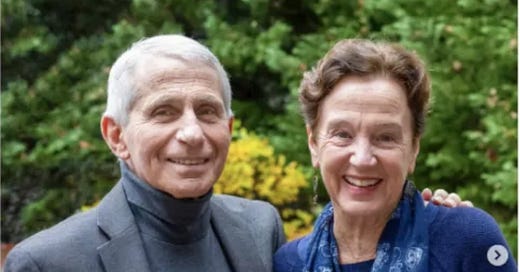



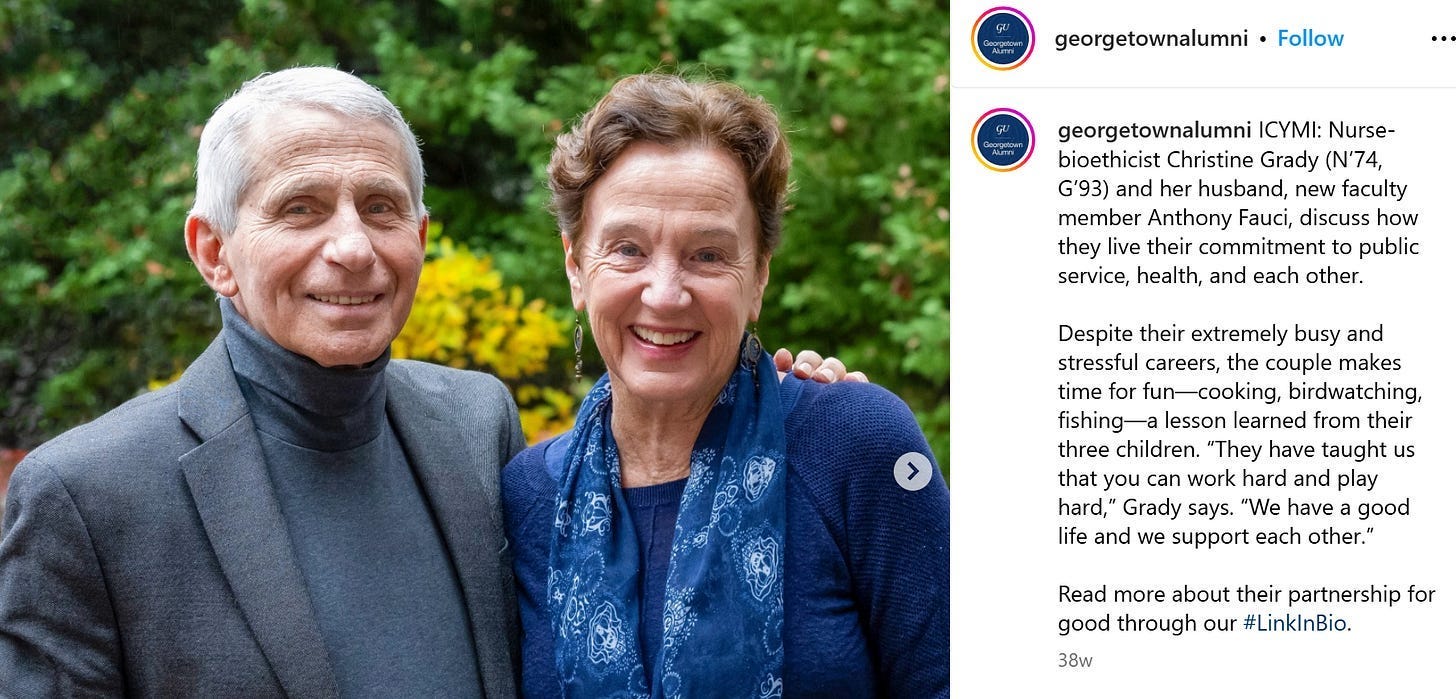
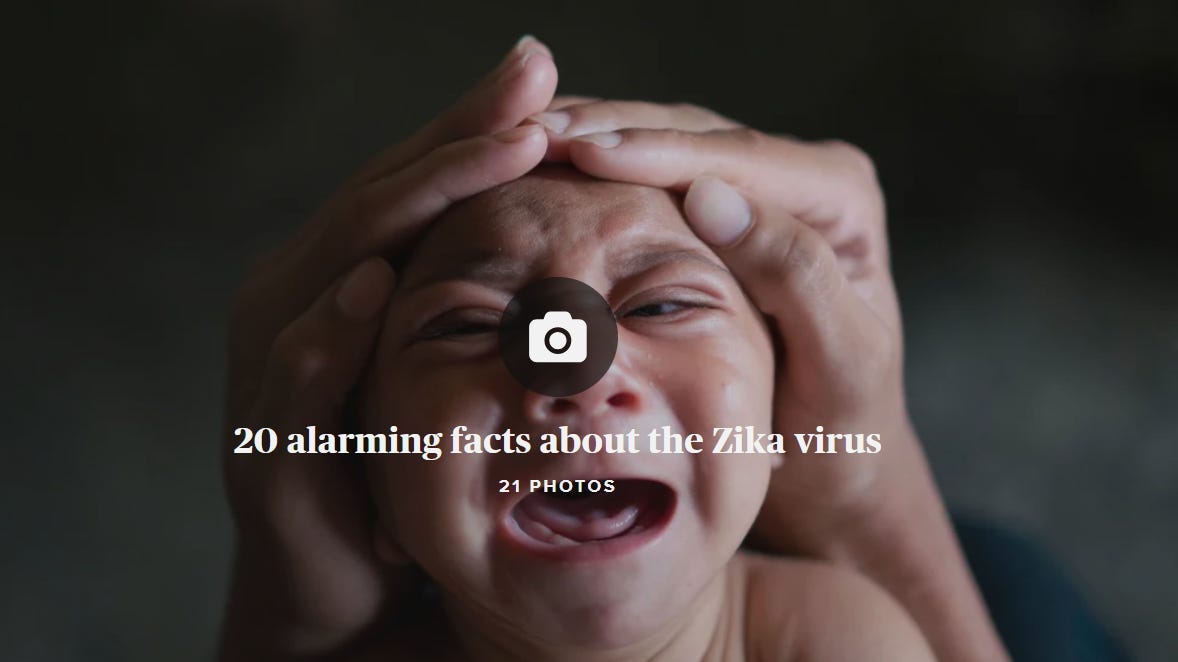
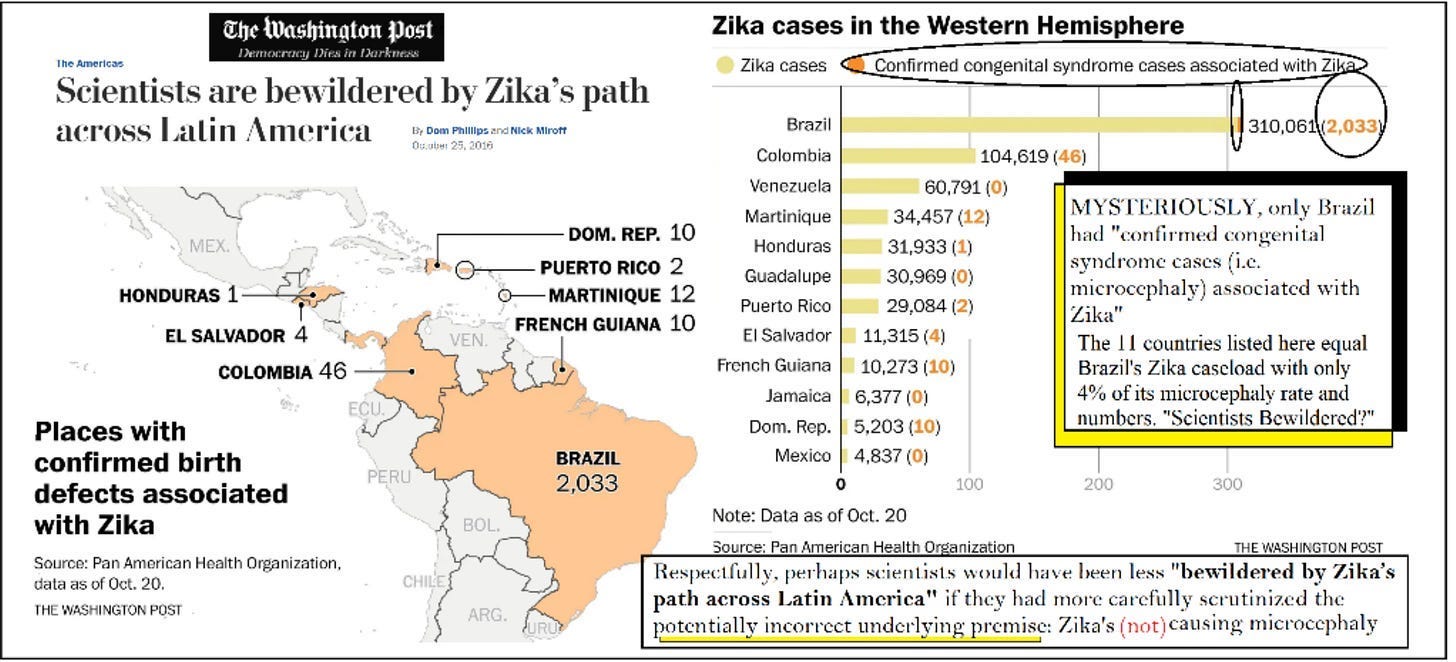
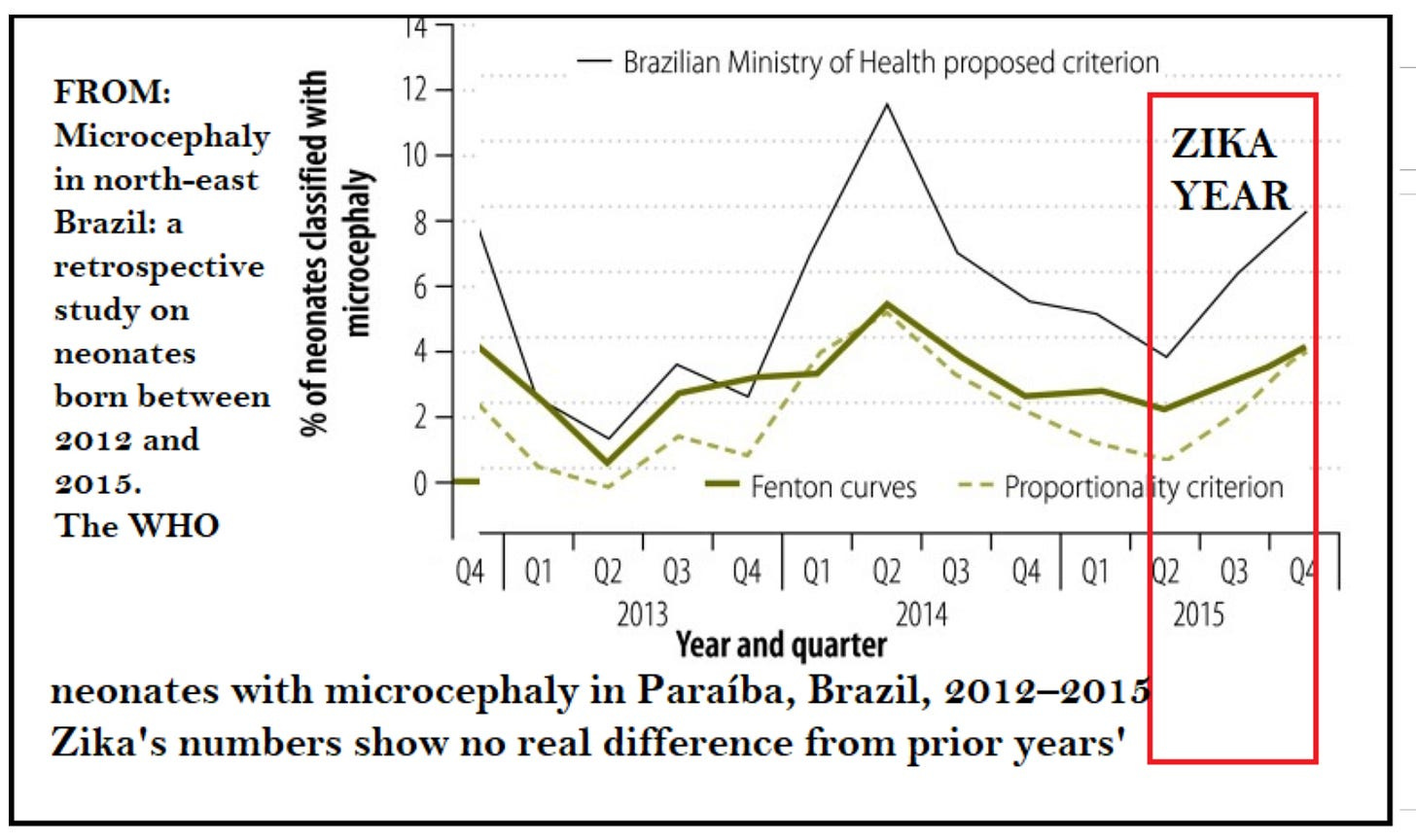
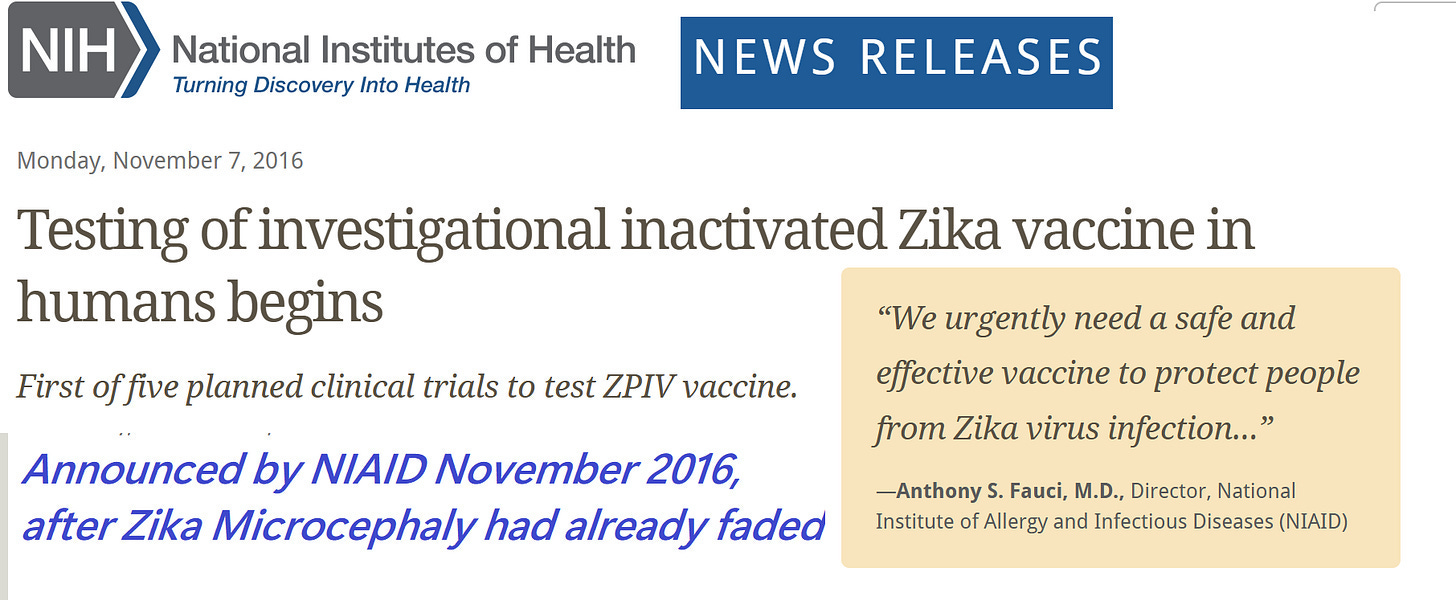
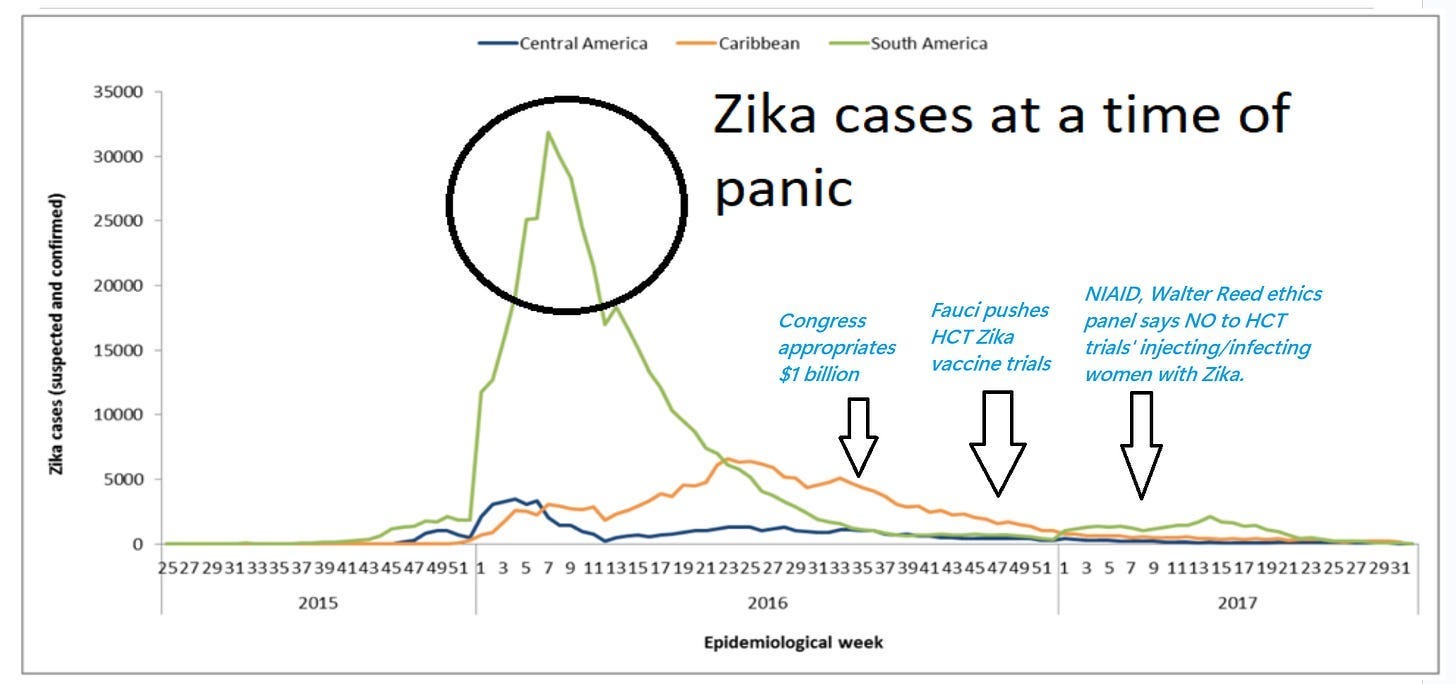


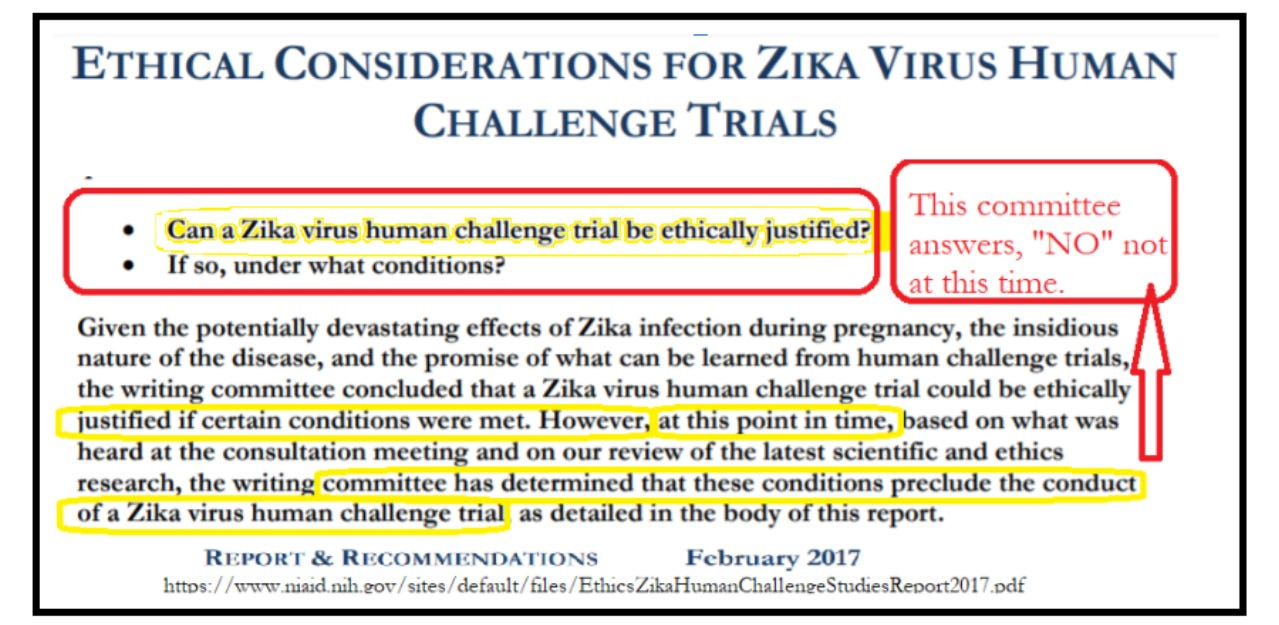


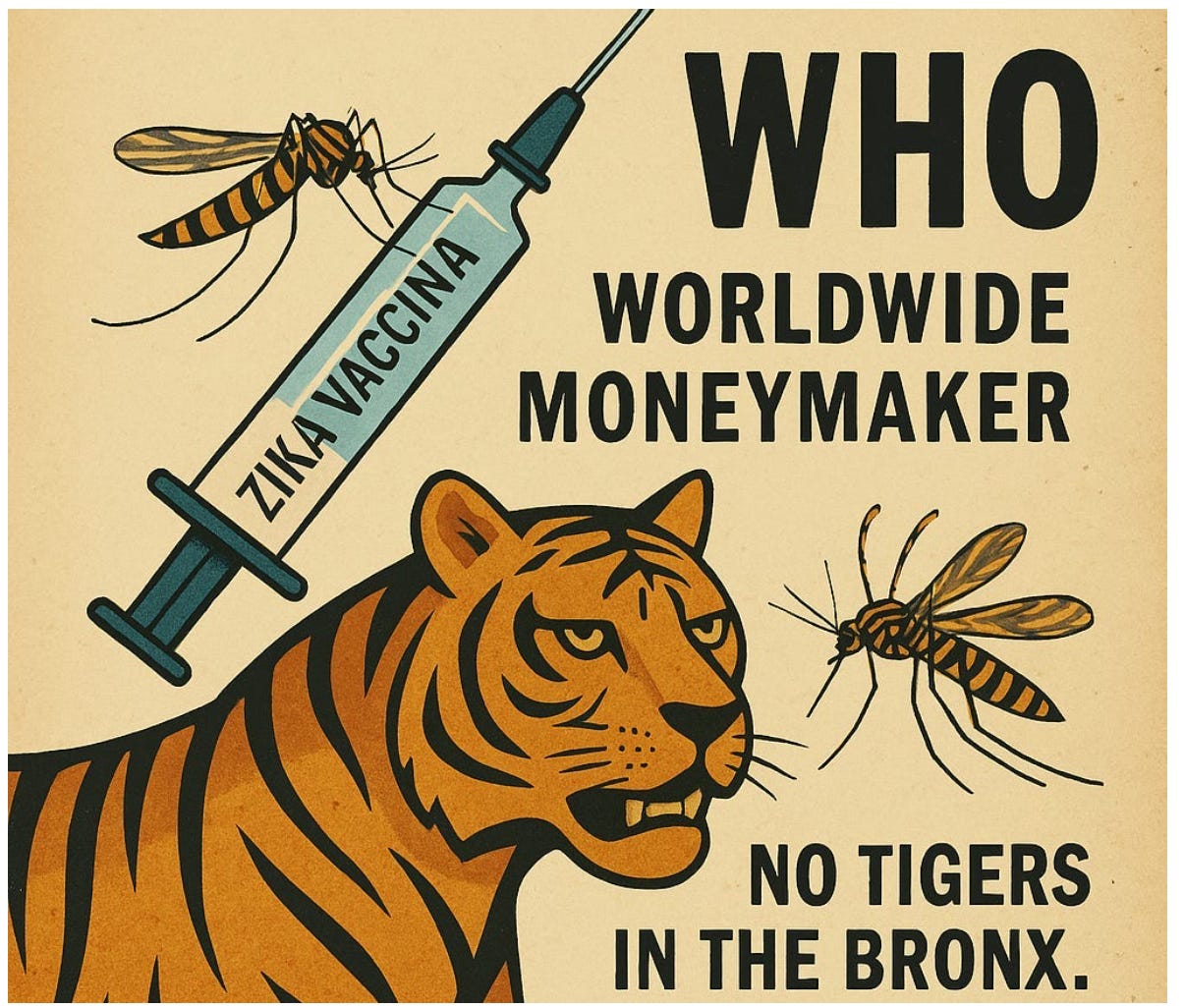











You mean that vaccines are really about money…
I’m so freaking shocked…
Make Execution Great Again!